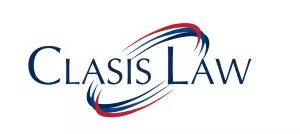The second wave of COVID-19 in India left the country in dismay due to the grim statistics of deaths. India Inc. was seen divided and confused, assessing its responsibility and liability in case of untimely deaths of its employees due to the novel virus.
In order to help its employees fight the pandemic, companies have been seen to come out with several ways to support its staff in these tough times. These include benefits such as enhancing medical insurance coverage to include COVID-19 protection, meeting medical expenses of COVID-19 infected employees, setting up vaccination and testing camps, compassionate payments to family of deceased employees, financial sponsorship for education of children of deceased employees, continuing disbursement of deceased employee's salary for a certain period etc. Despite providing such benefits, the question still lingers - Whether the employer would be held liable for COVID-19 related death in case the employee contracts the virus while at work? In order to assess the liability of the employer, it is important to understand the applicable laws pertaining to workplace injury, COVID-19 related notifications/ circulars issued by the Government and judicial precedents on related aspects.
In India, there are laws which provide for compensation for workplace injury and fatalities, which primarily include the Employee's Compensation Act, 1923 ("EC Act"). The answer to the question whether a COVID-19 related death can be deemed to be an injury under the EC Act would require assessment of the applicable provisions of the EC Act. Section 3 of the EC Act provides for payment of compensation to employees (or their dependants) in case of personal injury caused by accident arising out of and in the course of employment and resulting in disablement or death.
At the outset, it is pertinent to note that certain occupational diseases are also deemed to fall within the meaning of the term 'accident' under Section 3. Such occupational diseases are specified in Schedule III of the EC Act and these diseases are also linked to the nature of employment. Entry 1 of Part A of Schedule III specifies 'infectious and parasitic diseases' as occupational diseases provided the same are contracted in an occupation where there is a particular risk of contamination. These occupations are also listed in Schedule III as follows:
(a) All work involving exposure to health or laboratory work;
(b) All work involving exposure to veterinary work;
(c) Work relating to handling animals, animal carcasses, part of such carcasses, or merchandise which may have been contaminated by animals or animal carcasses; and
(d) Other work carrying a particular risk of contamination.
As is evident from the above, contraction of an infectious disease must arise within the course of employment in any of the above occupations to make the employer liable to compensation under the EC Act. While items (a) to (c) above are applicable only to specific sectors, the wide nature of item (d) needs to be explored to analyse if the employer can generally be held liable under the EC Act for a COVID-19 related death. One school of thought is that in the present pandemic situation, almost every workplace that has employees working physically can be deemed to carry a risk of contraction of COVID-19 (an infectious disease) and accordingly covered under item (d) above. However, such an interpretation can have far reaching consequences as in such a case establishments would be liable to pay compensation for every COVID-19 case (whether the patient recovers or dies).
In view of the above, there is abundant scope for interpretation when it comes to item (d) under Entry 1 of Part A of Schedule III. However, until the Government comes out with any clarification or amendment of the law to include COVID-19 as an occupational disease in all employments or the Indian judiciary interprets the existing law in that manner, the industry seems to not be treating COVID-19 related cases or deaths as a subject of compensation under the EC Act.
Accordingly, any compensation or benefits in the present scenario would be as per the internal policies of the employer or at its discretion. In case companies have any internal policy adopted for workplace deaths, it should be followed. Furthermore, while undertaking the full and final settlement of the outstanding dues of the deceased employees, companies would also be liable to pay gratuity (which in case of death is applicable even if employee has not completed 5 years of service).
The content of this article is intended to provide a general guide to the subject matter. Specialist advice should be sought about your specific circumstances.


